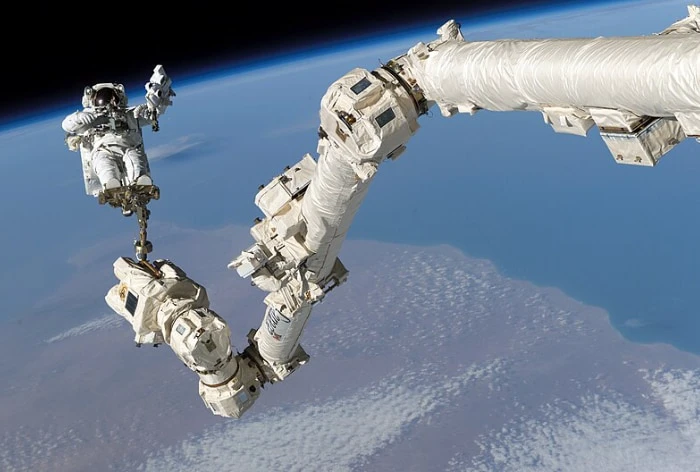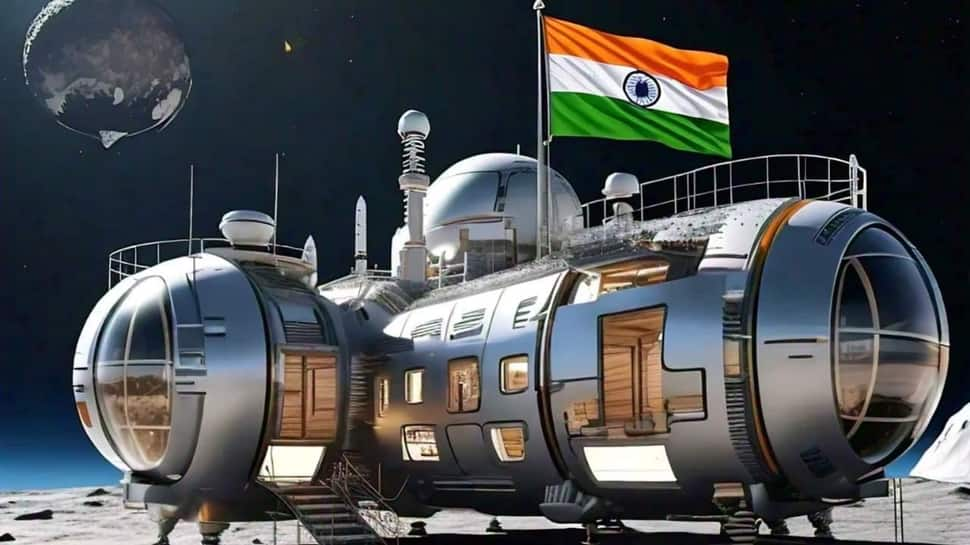New Delhi: As technology develops and space flight costs fall, space tourism and moon adventures are growing in popularity. Many businesses now provide journeys to the International Space Station, suborbital flights, and even moon adventures for people who have always wanted to travel to space.
People can be amazed by a variety of things when they travel to space or visit the moon. One is that the sights from space are absolutely stunning.
People can gain a new understanding of our planet and our role in the cosmos by viewing the Earth from space, which is a genuinely remarkable experience. So, here are 10 things about space that will leave you amazed.
1. Eating In Space Is Difficult
Eating food in space is a challenge, but it is possible to enjoy a variety of foods by using special packaging and preparation methods. Food in space is typically packaged in vacuum-sealed bags or retort pouches, which helps to prevent it from spoiling. Food is also often packed in plastic wrapping or cans.
2. Sleeping In Space-The Greatest Challenge
Sleeping in space is challenging because of the lack of gravity. To prevent astronauts from floating around and hitting something, they have to strap themselves to their sleeping bags. Sleeping bags in space are also designed to be compact and lightweight, as space is limited on spacecraft.
Each crew cabin can only accommodate one astronaut, so astronauts have to take turns sleeping. They typically sleep for eight hours a day, just like people on Earth. However, astronauts may also take naps throughout the day to stay alert, as per Luxury Travels.
3. Space Tourism Will Be Just For Rich
Space tourism is still in its early stages and will likely remain expensive for the foreseeable future. The cost of developing and operating space tourism vehicles is high, and the number of people who are willing to pay for the experience is still relatively small.
4. Raw Materials From Space Are Required For Us
There are valuable substances in space, such as gold, silver, platinum, and helium-3. Helium-3 is a rare isotope of helium that is found in the sun and in the atmospheres of comets and asteroids. It is a potential fuel for nuclear fusion reactors, which could generate clean and abundant energy.
The moon is a potentially lucrative source of helium-3. It is estimated that there are billions of tons of helium-3 on the moon, which is more than the entire amount of helium-3 on Earth. Space miners could extract helium-3 from the moon and use it to power nuclear fusion reactors on Earth, as per howstuffworks.
5. It Could Help Answer Big Questions
A 2021 Pew Research Center survey found that nearly two-thirds of Americans (65%) believe that intelligent life exists on other planets. However, the public does not view UFOs as a major threat to the country. When asked to think about U.S. national security, 51% of Americans say that UFOs are not a threat at all, and 36% believe they are a minor threat, the report said.
6. Colonization Of Space Might Just Become Necessary For Survival
Scientists estimate that Earth can sustainably support between 8 and 16 billion people. However, the current global population is already nearly 8 billion. This has led some futurists to argue that we need to start planning to colonize another planet soon, or else our descendants may not have a place to live.
7. Change In Body Fluid Balance
The fluid shift in the head can cause a condition called cephalad fluid shift, which can lead to headaches, blurred vision, and difficulty thinking clearly. Space travelers may also experience swelling in the face and hands.
8. Balance Issues
The lack of gravity can also affect the inner ear, which is responsible for balance. This can lead to dizziness, nausea, and vomiting. Space travelers may also have difficulty walking or standing upright.
9. Immunity Issues
Space travelers are more susceptible to infections because they are not exposed to as many germs in space. Their immune systems may also weaken after spending a long time in space. This is because the immune system needs to be exposed to germs in order to stay strong, as per American Osteopathic Association.
10. Environmental Impact of Space Tourism
A study shows that soot particles from rockets are 500 times more efficient at retaining heat than all other surface and aviation soot sources.










